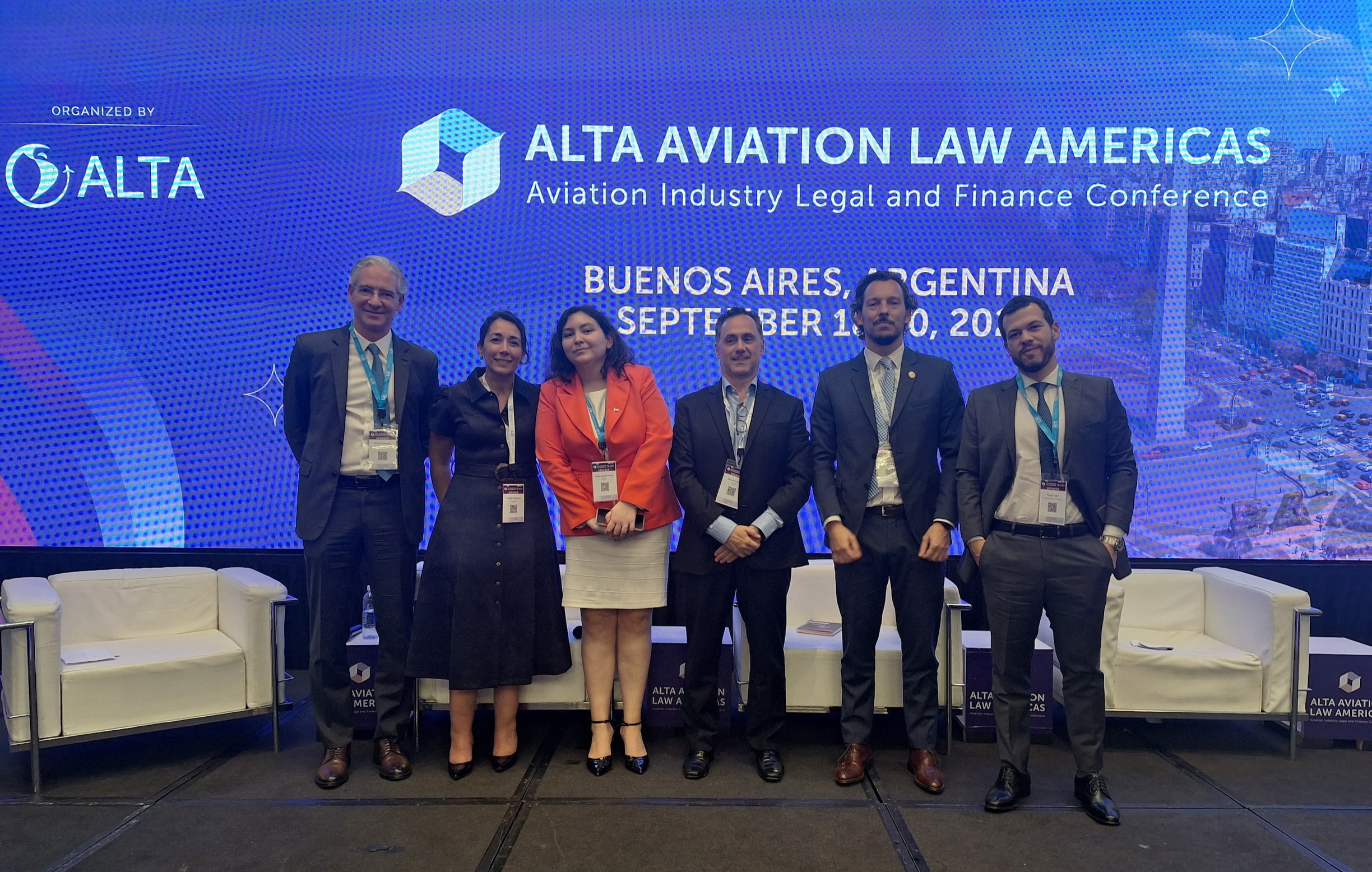Judicialization in the Aviation Industry
Experts discussed collaborative solutions to mitigate legal challenges and promote a fair environment in Latin America's aviation sector
September 26, 2024

Panama, September 24, 2024 – During the ALTA Aviation Law Americas 2024 conference, the panel "Finding Balance: Consumer Protection and Mitigation of Excessive Judicialization in Latin America" addressed one of the most pressing challenges for airlines: excessive judicialization, especially in countries like Brazil.
Moderator Ricardo Bernardi, partner at Bernardi e Schnapp Advogados, highlighted that moral damages, as a central theme in legal claims, significantly contribute to the volume of litigation in the region. "The issue of moral damages, as it is being used in lawsuits against airlines, creates a type of compensation that works like a blank check, with a guaranteed value. This happens because legal claims are considered valid without taking into account the reason for the flight delay or cancellation," he explained.
Agustín Ojea Quintana, Legal Director at Flybondi, shared insights on jurisdictional inconsistencies, highlighting that Brazilian judges are extending the application of national legislation to situations occurring outside the country. This practice creates legal uncertainty for airlines as well as passengers. “We do not question the competence of the Brazilian judge, what we ask is that, at the time of judging, the aeronautical code or the regulation of the country where the flight happened be used.”
Flávio Igel, partner at Nantes Mello Advogados, illustrated how predatory litigation practices—such as claim fragmentation and the involvement of legal tech platforms—are becoming increasingly common. His presentation included measures that airlines can take to identify these practices.
Presenting alarming data on the judicialization of the Brazilian aviation sector, Bruno Bartijotto, Legal Director of LATAM Brazil, emphasized that although LATAM Brazil represents only 50% of the group's operations, 98.5% of the legal cases the company faces occur in Brazil. "This disparity reveals the high concentration of litigation in the country and the issue of moral damages, where settlements often exceed 300% of the ticket price, significantly increasing the financial burden on airlines," Bartijotto noted.
Maria Eugenia Torres, Head of Aircraft Registration at ANAC Argentina, discussed the new decree aimed at establishing an aviation conciliation service. "The goal is to unify the rules, ensuring consumer rights within the context of aviation law, but with a more effective oversight involving passengers."
Reflecting on the regulatory landscape in Latin America, Cecilia Demarco, Legal and Corporate Affairs Director at JetSMART, explained that predictability and legal certainty are essential. "The aviation industry is used to operating under strict regulations, which is natural in a sector so vital to the economy and society. However, it is crucial that these regulations do not limit companies' ability to innovate and offer products based on their business models, as this could restrict market freedom and, consequently, affect the diversity of options available to consumers. Ultimately, the consumer must have the ability to choose what best suits their needs, and any regulatory initiative must consider this principle to ensure the sustainability of companies and healthy competition," she emphasized.
The discussions among experts made it clear that excessive judicialization not only overwhelms the legal system but also compromises the sustainability and development of the aviation sector. In the end, it is the passengers who suffer the most, facing higher costs and fewer service options. By fostering dialogue and adopting educational measures, it is possible to create a more balanced environment that protects consumer rights while ensuring the viability of the sector.


























